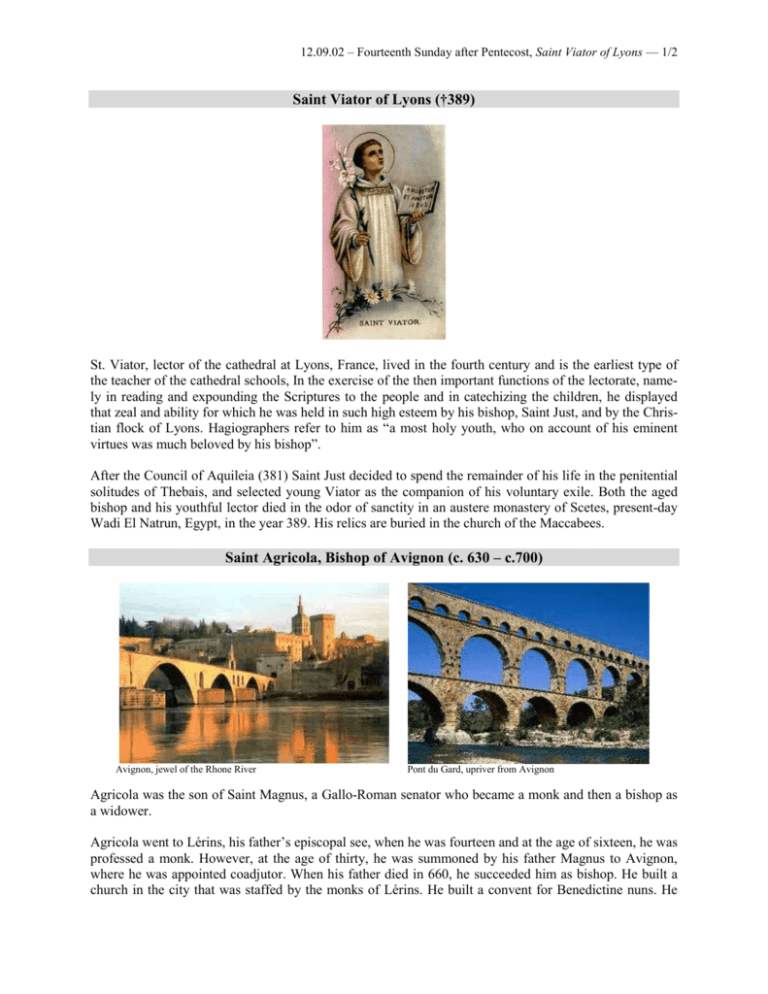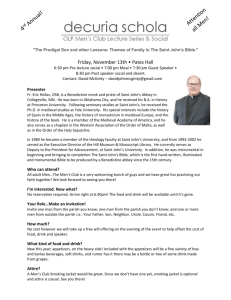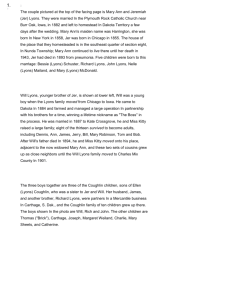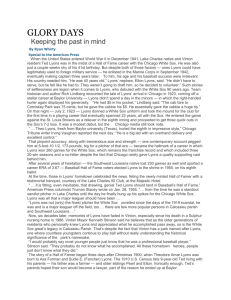Saints of the day - Celtic Orthodox Church
advertisement

12.09.02 – Fourteenth Sunday after Pentecost, Saint Viator of Lyons — 1/2 Saint Viator of Lyons (†389) St. Viator, lector of the cathedral at Lyons, France, lived in the fourth century and is the earliest type of the teacher of the cathedral schools, In the exercise of the then important functions of the lectorate, namely in reading and expounding the Scriptures to the people and in catechizing the children, he displayed that zeal and ability for which he was held in such high esteem by his bishop, Saint Just, and by the Christian flock of Lyons. Hagiographers refer to him as “a most holy youth, who on account of his eminent virtues was much beloved by his bishop”. After the Council of Aquileia (381) Saint Just decided to spend the remainder of his life in the penitential solitudes of Thebais, and selected young Viator as the companion of his voluntary exile. Both the aged bishop and his youthful lector died in the odor of sanctity in an austere monastery of Scetes, present-day Wadi El Natrun, Egypt, in the year 389. His relics are buried in the church of the Maccabees. Saint Agricola, Bishop of Avignon (c. 630 – c.700) Avignon, jewel of the Rhone River Pont du Gard, upriver from Avignon Agricola was the son of Saint Magnus, a Gallo-Roman senator who became a monk and then a bishop as a widower. Agricola went to Lérins, his father’s episcopal see, when he was fourteen and at the age of sixteen, he was professed a monk. However, at the age of thirty, he was summoned by his father Magnus to Avignon, where he was appointed coadjutor. When his father died in 660, he succeeded him as bishop. He built a church in the city that was staffed by the monks of Lérins. He built a convent for Benedictine nuns. He 12.09.02 – Fourteenth Sunday after Pentecost, Saint Viator of Lyons — 2/2 was a well-known preacher, and famous for his charity and defense of the poor and sick against civil authorities. He died of natural causes. Fifteenth-century documents record that he prevented an invasion of storks by his blessing. He is thus patron of storks and is depicted with them as his emblem. In 1647, St. Agricola was named the patron saint of Avignon. He is invoked against gambling and misfortune of all kinds. Devotees prayed to him for good weather, fine harvests, and rain. He is also invoked against the bubonic plague and misfortune of all kinds. Saint Just of Lyons († 390) Reliquary of St Just of Lyon, Museo dell’ Opera del Duomo (Florence) Castle of Soubise, Tournon-sur-Rhône Just (from the Latin Jutus which means “the one who helps”) became the thirteenth Bishop of Lyons in 350. He was born in the fourth century at Tournon by the Rhone River and was said to be the son of the Roman governor of the province of the Vivarais. He was elected Bishop of Lyons by the faithful of the city in the second half of the fourth century. As bishop of the capital of Gaul, he participated in the First Council of Valence (374) and of the Council of Aquileia (381) where he firmly rejected Arianism. Upon his return to Lyons he was unable to prevent the lynching of a criminal who had found refuge in his cathedral despite the immunity of the place and he held himself responsible for it. He resigned as bishop and, accompanied by his cleric, Saint Viator, he did penance in Egypt in the desert of Scete where he retired in a monastery as a simple monk. A delegation of people from Lyons led by Antiochus (the future Saint Antiochus), went to the holy hermit but was unable to convince him to follow them back to Gaul. Upon his return Antiochus was named Bishop of Lyons and had the bodies of Saints Just and Viator brought back and laid them in the Basilica of the Maccabees which became the Basilica of Saint Just. Saint Antiochus himself is buried there.











